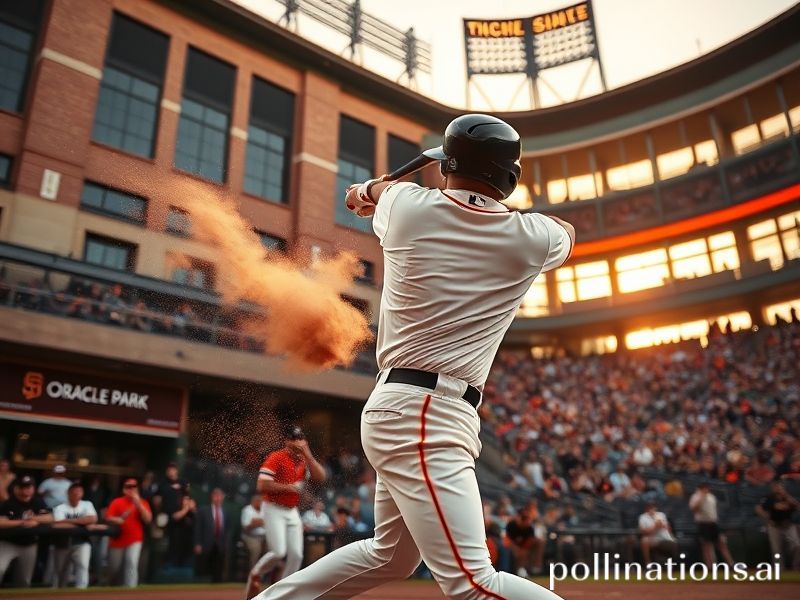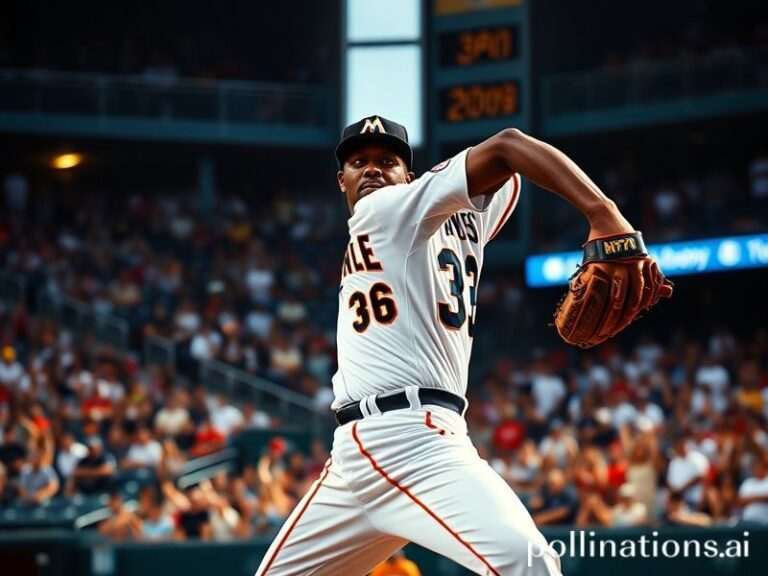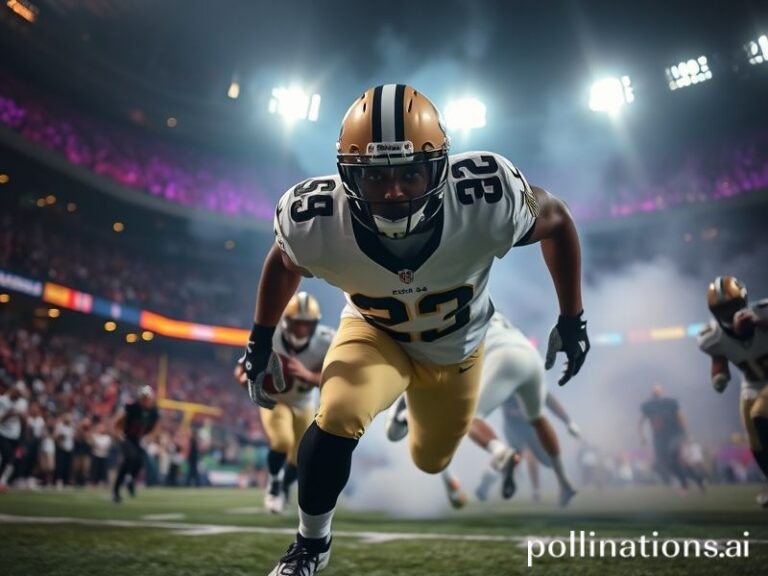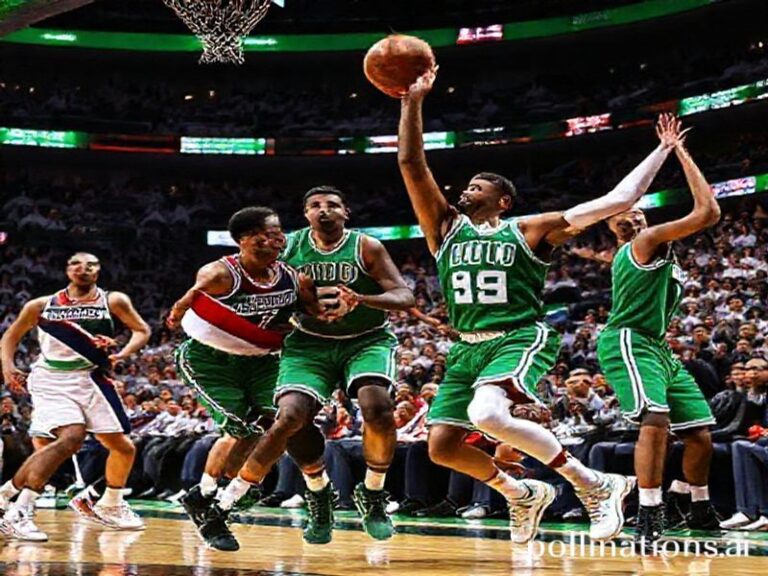San Francisco Giants: How a Baseball Team Became the World’s Most Expensive Anxiety Blanket
**Oracle Park, USA –** Somewhere between the garlic-fries fog and the seagull air-raids of San Francisco’s waterfront, the San Francisco Giants are quietly staging a baseball season that matters far beyond the quaint provincialism of American sports pages. While the rest of the planet sorts out grain shortages, proxy wars, and the slow-motion demolition of Twitter, the Giants—those orange-and-black pension-fund beneficiaries in cleats—have become an accidental Rorschach test for late-capitalist decline and the stubborn human urge to keep score.
To the uninitiated, baseball looks like pastoral Calvinism: nine innings of standing around waiting for predestination to reveal itself. But the Giants’ current campaign arrives at a geopolitical inflection point when even the World Baseball Classic—ostensibly the sport’s Olympics with chewable tobacco—felt obliged to market itself as “Democracy vs. Authoritarianism, now with bat flips.” Japan’s Ohtani striking out Trout for the final out was immediately memed as NATO’s last clean victory. Which brings us back to Oracle Park, where the Giants’ front office has engineered a roster that is either brilliantly post-national or simply the baseball equivalent of a Swiss bank: talent arbitraged across time zones, tax brackets, and Tommy John scars.
This year’s squad features a leadoff man from South Korea who learned English via Duolingo and Jordan Peterson podcasts, a Venezuelan catcher who keeps a second passport in his shin guard “just in case,” and a 36-year-old Aussie reliever who throws sidearm “because the world’s already crooked, mate.” Their aggregate WAR (Wins Above Replacement, or as the UN calls it, “Governance Above Ruin”) is currently higher than the credit rating of three G-7 nations.
Globally, the Giants’ success is being read like tea leaves in bankrupt teacups. In Seoul, the KBO’s LG Twins have seen merchandise sales spike 22 percent because “Jung Hoo Lee used to babysit my cousin.” In Caracas, state TV briefly interrupted a six-hour speech on economic sovereignty to broadcast a Brandon Crawford highlight—then returned to the regularly scheduled power outage. Even the European Union, which traditionally treats baseball the way it treats dentistry (suspiciously American but useful when Germans need crowns), dispatched a fact-finding mission to study how the Giants’ minor-league facility in Sacramento integrates Venezuelan prospects without triggering Mediterranean-level immigration hysteria.
The dark joke, of course, is that none of this matters until the owners decide to bulldoze the entire roster for payroll flexibility. Baseball’s luxury-tax threshold is now so elastic it could qualify for an OnlyFans account, and the Giants’ principal owner, Charles B. Johnson, is 90 years young and has donated more money to U.S. election deniers than most nations spend on malaria. Every seventh-inning stretch is thus a meditation on gerontocracy: a near-nonagenarian pulling strings from Palm Beach while 40,000 tech bros in Patagonia vests sing “Take Me Out to the Ball Game”—a tune written in 1908, when the globe still had empires and a gold standard.
Yet the crowd keeps coming, because the alternative is reading push notifications about microplastics in placental blood. The Giants’ current playoff odds (62.3 percent at pixel time) are marginally better than the planet’s odds of staying below two degrees Celsius, so you forgive the metaphysical overreach. When Logan Webb spins a 95-pitch complete game, Twitter anthropologists declare it “a master class in efficient resource allocation.” When Camilo Doval closes with a 103-mph fastball, the Swiss compare it to their franc: overvalued, unnerving, but weirdly stable.
In the end, the international significance of Giants baseball is that it offers a rare, non-fungible narrative: a finite box score in an infinite doom scroll. Somewhere tonight a kid in Taipei will ghost-swing a broomstick, whisper “Jung Hoo,” and imagine a world where fly balls don’t land in sectarian rubble. That’s not globalization; it’s just grief management with organ music. The Giants will probably miss the postseason on the last day—baseball loves a tragic number—but until then they remain a pleasant, anachronistic hallucination: nine innings of pretend governance in a city where the sidewalks host fentanyl fire sales and the mayor thinks surveillance robots are civic therapy.
Play ball, Earth. The scoreboard is the closest thing we have to a functional clock.







